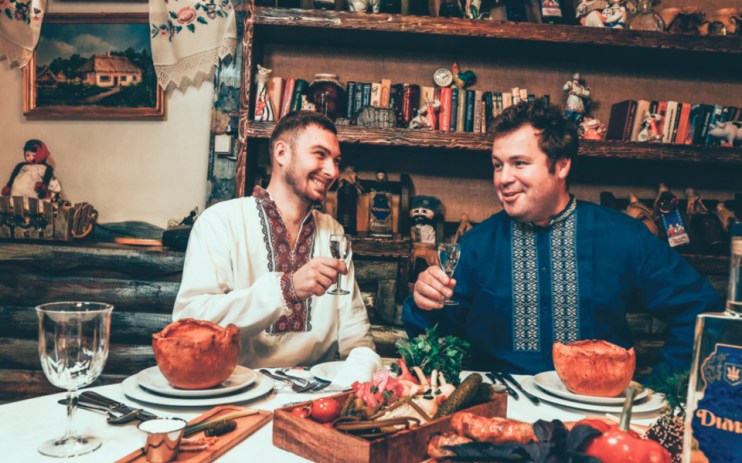A toast to a famous Ukraine Eurovision win – with vodka of course

Ukraine’s triumph at last weekend’s Eurovision Song Contest came as a surprise to no-one.
The competition’s traditional regional, ethnic, and political voting blocs were abandoned, as voters from across the continent delivered their overwhelming support to the embattled people of Ukraine, and while the folk-rap number Stefania, by Kalush Orchestra, may not have won strictly on its artistic merits, the tidal wave of sentiment from the television audience was more than sufficient to secure its victory.
Russia was absent from the competition, having been banned from participating by the organiser, the European Broadcasting Union. Perhaps this is not the most significant sanction against the country, which has faced unprecedented action from the international community, but it was smart considering the popularity of the competition in Russia, which had placed in the top 5 five times in the last decade. Indeed, the measured response of one Russian commentator, journalist Yuliya Vityazeva, was to call for the bombing of Eurovision with a “Satan” intercontinental ballistic missile.
However, as the West continues to wage economic war on Russia, its drinks industry has become one of the most prominent targets. Within days of the invasion bars began pulling Russian vodka. Within weeks, supermarkets had withdrawn it from sale. While it is still legal to purchase Russian vodka in the United Kingdom, it has been slapped with an additional 35% import tariff, part of a package of measures that the government said “will cause maximum harm to Putin’s war machine while minimising the impact on UK businesses”. But even targeted sanctions cause collateral damage.
One UK business that was seriously affected was Halewood Artisanal Spirits. The family-owned company was forced to relocate production of its JJ Whitley brand vodka from its purpose-built distillery in St Petersburg – a £5 million facility, which only opened in September 2020 – to Chorley, in Lancashire.
Prior to the invasion, JJ Whitley had been the second-biggest selling Russian-made vodka in the UK, and while the company’s ability to repatriate production meant it could avoid being delisted, no such option was available to Russian Standard. The Russian-owned brand, which was previously Britain’s most popular Russian vodka has disappeared from our shelves, leaving a £111 million gap in the market.
Given the circumstances in which British drinkers find themselves seeking alternatives to Russian vodka, it is unsurprising that Ukrainian brands – like Khlibnyi Dar, Khortytsia, and Nemiroff – have attracted particular interest. But Dima’s Vodka, a comparatively new entrant to the market, deserves your attention as the first Ukrainian triple-grain vodka to be sold in the UK.
Founded in 2020, by Dima Deinega, his namesake spirit is a premium, craft vodka produced at a 125-year-old distillery in Zhytomyr, west of Kyiv. The mash bill is a unique blend of barley, wheat, and rye, grown in Ukraine’s highly fertile chernozem; “black soil”, containing high levels of humus and naturally occurring chemicals that promote plant growth.
Deinega says: “I was born in Ukraine and my family owned the country’s first Irish pub so I learned from an early age that vodka is an intrinsic part of Ukraine’s food and drink culture, and steeped with so many unique traditions which continue to unite the nation today. I’m very excited to be sharing a superior Ukrainian vodka with the UK market and celebrate the country’s fascinating culture.”
Deinega wanted his product to stand out from the single grain or potato-based spirits that British drinkers have come to expect, so it was made with the intention of challenging preconceptions. Traditionally, vodkas have been favoured for their clarity and neutral taste, and although Dima’s Vodka is crystal clear, it has layers of flavour that distinguish it as an outstanding sipping-drink. The wheat gives it a creamy viscosity that coats the tongue, there is light pepperiness and pumpernickel bread on the palate, and the finish has the merest suggestion of ouzo.
• Since the conflict began, Dima’s Vodka has been raising money for Ukrainian relief charities, and they are currently donating £5 from every £35 bottle sold. Go to dimasvodka.com